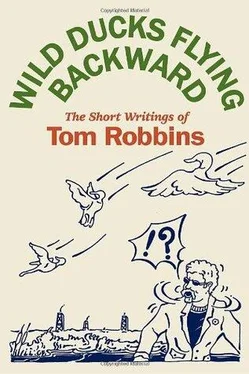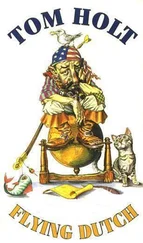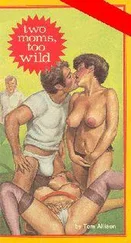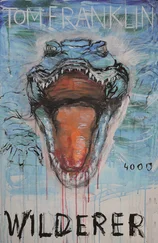What Do You Think Writer’s Block Is and Have You Ever Had It?
I’m not convinced that there’s any such thing as “writer’s block.” I suspect that what we like to call “writer’s block” is actually a failure of nerve or a failure of imagination, or both.
If you’re willing to take chances, risk ridicule, and push the envelope, and if you’ve managed to hold on to your imagination (the single most important quality a writer can possess, even slightly more important than an itchy curiosity and a sense of humor), then you can dissolve any so-called block simply by imagining extraordinary, heretofore unthinkable solutions, and/or by playing around uninhibitedly with language. You can imagine or wordplay your way out of any impasse. That’s assuming, of course, that you’re talented in the first place.
Asked by New Times, 2002
With What Fictional Character Do You Most Identify?
I’ll take Gorodish. And, no, I’m not trying to order the daily special in a Hungarian restaurant. Gorodish happens to be the name of the middle-aged character played by Richard Bohringer in Diva, the flashy/spiky 1981 film written and directed by Jean-Jacques Beineix.
Gorodish spends much of each day sitting in a bathtub in the center of his large, virtually empty Parisian loft, smoking cigars and meditating on the undulating blue water in one of those plastic wave machines. He has a teenaged Vietnamese paramour for whom he cares but of whom he is not the least bit possessive; and on the rare occasions when he leaves the loft, he wears handsome white suits and drives a gorgeous vintage white Citroën. As his young friends keep getting into trouble with gangsters, he comes to their aid, swiftly, effectively, and forcefully, but always with faint amusement and the kind of grace that never expends an erg more of energy than is absolutely necessary.
Serenely unattached yet wryly compassionate, Gorodish is coolness personified, the most Zen character in the history of cinema. He’s my ideal and, naturally, I want to emulate him, right down to the tub and the cigars — though I know I’ve got a ways to go. In fact, my own paramour insists that the fictional character I most resemble is not Beineix’s Gorodish, but Twain’s Tom Sawyer.
Solicited by an editor for inclusion in a survey book not yet published.
Is the Writer Obligated to Use His/Her Medium as an Instrument for Social Betterment?
Awriter’s first obligation is not to the many-bellied beast but to the many-tongued beast, not to Society but to Language. Everyone has a stake in the husbandry of Society, but Language is the writer’s special charge. A grandiose animal it is, too. If it weren’t for Language there wouldn’t be Society.
Once writers have established their basic commitment to Language (and are taking the Blue-Guitar-sized risks that that relationship demands), then they are free to promote social betterment to the extent that their conscience or neurosis might require. But let me tell you this: social action on the political/economic level is wee potatoes.
Our great human adventure is the evolution of consciousness. We are in this life to enlarge the soul, liberate the spirit, and light up the brain.
How many writers of fiction do you think are committed to that ?
Asked by Fiction International, 1984
Why Do You Live Where You Live?
I’m here for the weather.
Well, yes, I’m also here for the volcanoes and the salmon, and the fascinating possibility that at any moment the volcanoes could erupt and pre-poach the salmon. I’m here for the rust and the mildew, for webbed feet and twin peaks, spotted owls and obscene clams (local men suffer from geoduck envy), blackberries and public art (including that threatening mural the smut-sniffers chased out of Olympia), for the rituals of the potlatch and the espresso cart, for bridges that are always pratfalling into the water and ferries that keep ramming the dock.
I’m here because the Wobblies used to be here, and sometimes in Pioneer Square you can still find bright-eyed old anarchists singing their moldering ballads of camaraderie and revolt. I’m here because someone once called Seattle “the hideout capital of the U.S.A.,” a distant outpost of a town where generations of the nation’s failed, fed-up, and felonious have come to disappear. Long before Seattle was “America’s Athens” (The New York Times), it was America’s Timbuktu.
Getting back to music, I’m here because “Tequila” is the unofficial fight song of the University of Washington and because “Louie Louie” very nearly was chosen as our official state anthem. There may yet be a chance of that, which is not something you could say about South Carolina.
I’m here for the forests (what’s left of them), for the world’s best bookstores and movie theaters; for the informality, anonymity, general lack of hidebound tradition, and the fact that here and nowhere else grunge rubs shoulders in the half-mean streets with a subtle yet pervasive mysticism. The shore of Puget Sound is where electric guitars cut their teeth and old haiku go to die.
I’m here for those wild little mushrooms that broadcast on transcendental frequencies; for Kevin Calabro, who broadcasts Sonics games with erudite exuberance on KJR; for Dick’s Deluxe burgers, for the annual Spam-carving contests, the cigar room at Dolce’s Latin Bistro, Monday Night Football at the Blue Moon Tavern, opera night at the Blue Moon Tavern (which, incidentally, is scheduled so that it coincides with Monday Night Football — a somewhat challenging overlap that the first-time patron might fail to fully appreciate); and I’m here for the flying saucers that made their first earthly appearance near Mount Rainier.
I’m here for Microsoft but not for Weyerhaeuser. I’m here for Starbucks but not for Boeing. I’m definitely here for the Pike Place Market and definitely not here for Wal-Mart or any scuzzball who shops at Wal-Mart. I’m here for the snow geese in the tide flats but not for the snow jobs in the State House. I’m here for the tulips but not the Tulip Festival (they’re flowers, folks, not marketing tools!). I’m here for the relative lack of financial ambition (which, alas, may be responsible for some of those Wal-Mart shoppers), for the soaring population of bald eagles, and the women with their quaint Norwegian brand of lust. “Ya. Sure, ya betcha.”
But mostly, finally, ultimately, I’m here for the weather.
As a result of the weather, ours is a landscape in a minor key, a sketchy panorama where objects, both organic and inorganic, lack well-defined edges and tend to melt together, creating a perpetual blurred effect, as if God, after creating Northwestern Washington, had second thoughts and tried unsuccessfully to erase it. Living here is not unlike living inside a classical Chinese painting before the intense wisps of mineral pigment had dried upon the silk— although, depending on the bite in the wind, there’re times when it’s more akin to being trapped in a bad Chinese restaurant; a dubious joint where gruff waiters slam chopsticks against the horizon, where service is haphazard, noodles soggy, wallpaper a tad too green, and considerable amounts of tea are spilt; but in each and every fortune cookie there’s a line of poetry you can never forget. Invariably, the poems comment on the weather.
In the deepest, darkest heart of winter, when the sky resembles bad banana baby food for months on end, and the witch measles that meteorologists call “drizzle” are a chronic gray rash on the skin of the land, folks all around me sink into a dismal funk. Many are depressed, a few actually suicidal. But I, I grow happier with each fresh storm, each thickening of the crinkly stratocumulus. “What’s so hot about the sun?” I ask. Sunbeams are a lot like tourists: intruding where they don’t belong, promoting noise and forced activity, faking a shallow cheerfulness, dumb little cameras slung around their necks. Raindrops, on the other hand, introverted, feral, buddhistically cool, behave as if they were locals. Which, of course, they are.
Читать дальше












